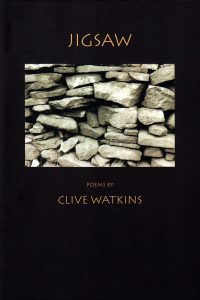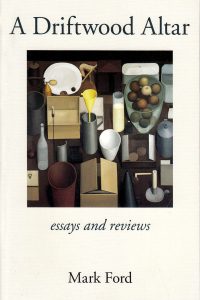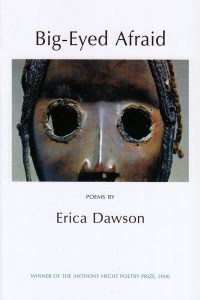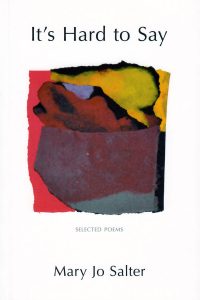Chancing It
£6.99
"When Martin spoke afresh, he sounded like someone Steve had heard from the doorway of the bookmaker’s. ‘Go on then: heads …’"
And so a matter of some consequence is settled on the toss of a coin.
For Steve, gambling on the outcome of a cricket match, having a flutter on the horses, trying his luck on scratch cards, even playing virtual roulette, are nothing daunting. But then Steve is only sixteen years old, and doesn’t have anything much to lose.
For his stepfather Martin, who has mortgaged the roof over the family’s head to underwrite his latest business enterprise, the stakes are considerably higher, however …
Chancing It is set in a northern city undergoing radical change, a region of light industry and heavy betting. Its all-too-human characters move to the music of their speech and of their compulsions, while being convinced, some of them, that what they move to is a music altogether different, and altogether more mysterious.
Chancing It
“This is an admirable piece of writing. Yorke writes beautifully, and his sense of place – of a Yorkshire town given over to light industry and games of chance – is completely convincing.The characters, especially the hero, Steve, are brilliantly drawn.” – George Melly
“I enjoyed and admired this book enormously. Yorke’s theme is gambling, and his treatment of it is brilliant. So is the way he brings his characters and the town they inhabit to life by an inspired choice of detail, original but always convincing, intensely observed and beautifully expressed. As well, I like the tone of the book – near to comedy but never facetious, near to tragedy but never melodramatic.” – Francis Wyndham
Book of the Year Nominations
The Scotsman, December 10th 2005
Allan Massie
"[A book deserving more attention] is Matthew Yorke’s Chancing It, an imaginative novel set in a Yorkshire town that has lost its old function. It rings true, and is written with an unusual understanding of, and sympathy for, so-called ordinary people."
Daily Telegraph, December 6th 2005
George Melly
"At almost 80 I read less, but this year I had a fairly wide choice. Matthew Yorke’s Chancing It has a 16-year-old hero like D.H. Lawrence’s Rocking-Horse Winner in a Yorkshire town. A fine evocation of places, people and period."
Times Literary Supplement, December 1st 2005
Karl Miller
"Matthew Yorke … has … written a deserving book in Chancing It … a quiet and funny cherishing of North Country punters in the grip of their compulsion."
Reviews of Chancing It
(Glasgow) Sunday Herald, December 4th 2005
"Chancing It – Matthew Yorke’s second novel – is well-worded, well-made, funny, grave and quietly suspenseful …" – Karl Miller
The Scotsman, November 5th 2005
"Some twenty years ago Matthew Yorke’s book The March Fence won the John Llewellyn Rhys Prize for first novels. I reviewed it in The Scotsman and said it was "the real thing, the best first novel I have read in a long time". I would then have predicted that Yorke would soon be an established, highly regarded author. But nothing appeared, bar a collection of his grandfather, Henry Green’s, previously uncollected writing, which Yorke edited. Even that was rather a long time ago: 1992. A while ago I read The March Fence again. It still seemed very good, and I was even more puzzled that there had been no successor. Now, at last, there is one … Chancing It is again a very good novel … Yorke writes with a lovely clarity, making the town [it is set in] come alive. He has imagined his characters thoroughly, especially Steve and Martin. When Steve is walking with the wrong girl, for instance, the right girl comes out of the hospital where she has been visiting her dying father, and at that moment the wrong girl, Anita, takes Steve’s hand. The right girl, Helena, sees them holding hands and gives an awkward smile, ‘as if she, too, did not know what to say …’ Steve feels ‘as if he had been on a train and had failed to get off at his stop; now the train was thundering ahead, the places, the people he was meant to be amongst, receding into the distance.’ This is good. There are moments of this sort throughout the novel. It’s about the way people – ordinary, mostly decent people – think, feel and behave. It’s not exciting, but it is revelatory and deeply satisfying. It’s not going to make headlines. It’s not going to be talked about in fashionable bookchat circles. It’s not going to lead to interviews with the author. It’s not going to excite any controversy. But this is true-to-life stuff, about the way people live now in a city a long way distant from the metropolis and without any urban buzz. Matthew Yorke tells it how it is, and that is always worth doing, and the result is worth reading … [A] quiet triumph." – Allan Massie
Daily Telegraph, November 5th 2005
“Seventeen years ago, Matthew Yorke’s accomplished first novel, The March Fence, won the John Llewellyn Rhys Memorial Prize. It featured an upper-class young man apprenticed to a Leeds steel works, and those with an interest in literary genealogy suspected that the author was doffing his cap to his grandfather, Henry Green, whose wonderful novel Living was based on his experiences working on the shop floor of the family engineering firm in Birmingham. Yorke was reputedly writing a second book, ‘on contemporary London’, but this never appeared. A biographical note in Chancing It informs us that he now ‘works in Leeds as an engineer’, which may explain why it has taken so long for this second novel to appear … Unlike his famously and gloriously oblique grandfather, Yorke writes in a simple, unadorned style, and his narrative is straightforward and uncluttered. Chancing It is, however, more carefully wrought than its rather plain surface might suggest … [I]t … makes one hope there will be rather less of a wait for his third [novel]." – Peter Parker
Independent on Sunday, October 30th 2005
*****
“Steve was only three when his father was knocked down and killed by joy-riders – a senseless death which sets the tone for much of this excellent novel. The event was awful but the remaining family benefited from it materially: they could afford to buy their house outright with the insurance money. Now, as a teenager, slightly cynical and a little shy, Steve watches as his stepfather Martin and mother Mary-Anne remortgage the family home so they can become property developers. At the same time he and his brother Vinnie are each given a large sum of money by an old family friend. Steve puts his in the bank, while Vinnie invests in a market stall selling bongs and pipes. The whole family, it seems, have found ways to make easy money. Following the example of Martin, who enjoys betting on the horses, Steve decides to place a bet on a cricket match. When he wins, it isn’t long before he wants to place another bet, with higher stakes. Meanwhile, Martin buys a run-down flat to redevelop and launches into the task of tearing down brick and plaster. Unfortunately his building methods are unsound and the flat above, owned by a punctilious solicitor, begins to crack up. Vinnie’s business, meanwhile, begins to attract unwanted attention. A wry, politically charged novel, Chancing It is much more than a simple fable. Yorke’s prose is often poetic, his themes unexpectedly complex; the hapless characters and their sad games of chance are unforgettable.” – Tom Boncza-Tomaszewski
Irish Times, October 29th 2005
"His family home is under threat, he is involved with the wrong girlfriend, his brother is in trouble – the cards are not falling teenager Steve Marsden’s way, but as the odds stack up against him, at least he seems to have the gift of picking a winner at the bookie’s. As in Yorke’s first novel, The March Fence, which won the John Llewellyn Rhys Prize, a soulless northern English city is the backdrop to a struggle between unrewarding responsibilities and dreams of lucky escape; this time, though, the old industries and work habits have disappeared, and a deregulated and hugely popular gambling sector offers hope in the form of online casinos, lottery tickets, scratch cards, and whatever kind of bet you’re having yourself. Yorke is both an astute, sometimes lyrical, observer of this environment and a deft storyteller, inexorably raising the stakes for his harassed but likeable characters until the last spin of the wheel." – Giles Newington
Praise for Matthew Yorke’s last novel
"This is a novel which throbs with life and wonder at the manifold varieies of experience … The talent for writing novels may be hard to define, yet it is unmistakable when encountered … [Matthew Yorke’s The March Fence] is the real thing … the best first novel that I have read in a long time." – Allan Massie, The Scotsman
"A most impressive debut." – Elaine Feinstein, The Times
"Distinctive, energetic … the narrative takes a real grip …" – Hilary Mantel, Daily Telegraph
"[P]recision and craftsmanship … form the … backbone of this thoughtful and unusual [first] novel. – Leslie Dick, New Statesman
"As Martin methodically prepared them each a drink of tea – washing the mugs in one bucket, rinsing them in another – Steve continued to gaze at the page of newsprint before him, his focus softening, his eyes moving blindly about the tangle of data and statistics. His thoughts, too, began to lose their focus: now he was picturing Raff with her back to him as she spoke in her kitchen; he could hear her voice rising and falling with its gentle tones of persuasive conviction. Before long the Hamilton card was no more than a cauldron of names and numbers – but, for whatever reason, there were some names that seemed to demand more attention than others. Little John and Mighty Pip, for instance, stood out from the crowd; so did Trailer Park and Mark Anthony. Steve snapped out of his reverie. As he did so, the names of those horses which had previously seemed to warrant more attention than the others lost their boldness – no longer did they appear highlighted. With difficulty, Steve managed to let his eyes focus beyond the page once more and so return the card to its meaningless state, names repeated twice, numbers superimposed endlessly over each other. There was no doubt about it: Trailer Park, Mark Anthony, Little John and Mighty Pip burnt with an intensity which kept them well apart from the competition.
The Waywiser Press





